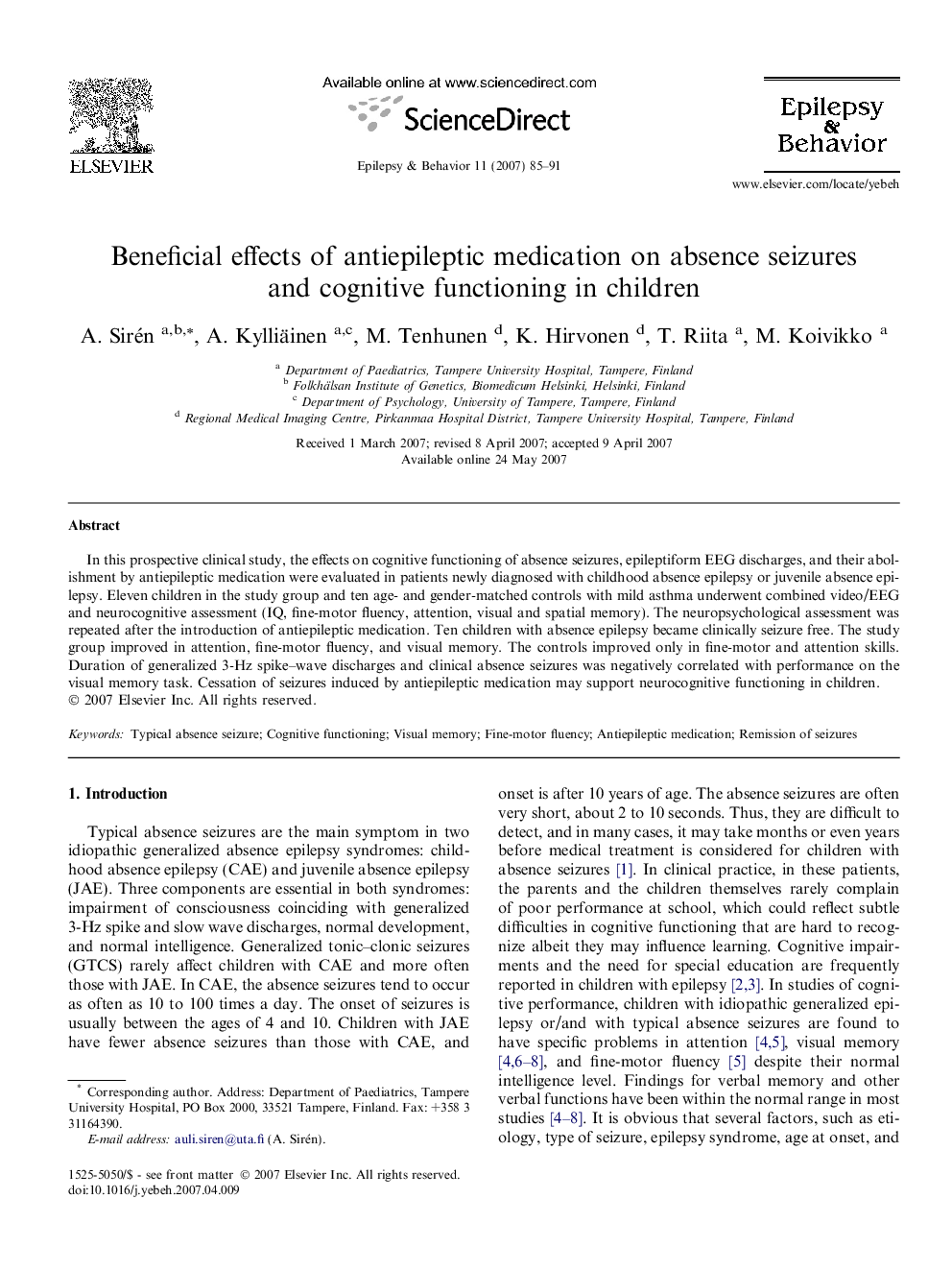| Article ID | Journal | Published Year | Pages | File Type |
|---|---|---|---|---|
| 3050910 | Epilepsy & Behavior | 2007 | 7 Pages |
Abstract
In this prospective clinical study, the effects on cognitive functioning of absence seizures, epileptiform EEG discharges, and their abolishment by antiepileptic medication were evaluated in patients newly diagnosed with childhood absence epilepsy or juvenile absence epilepsy. Eleven children in the study group and ten age- and gender-matched controls with mild asthma underwent combined video/EEG and neurocognitive assessment (IQ, fine-motor fluency, attention, visual and spatial memory). The neuropsychological assessment was repeated after the introduction of antiepileptic medication. Ten children with absence epilepsy became clinically seizure free. The study group improved in attention, fine-motor fluency, and visual memory. The controls improved only in fine-motor and attention skills. Duration of generalized 3-Hz spike-wave discharges and clinical absence seizures was negatively correlated with performance on the visual memory task. Cessation of seizures induced by antiepileptic medication may support neurocognitive functioning in children.
Related Topics
Life Sciences
Neuroscience
Behavioral Neuroscience
Authors
A. Sirén, A. Kylliäinen, M. Tenhunen, K. Hirvonen, T. Riita, M. Koivikko,
